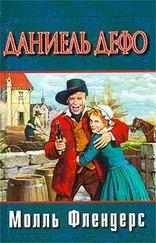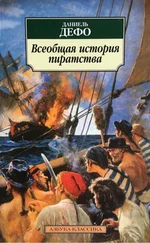Даниэль Дефо - History of the Plague in London
Здесь есть возможность читать онлайн «Даниэль Дефо - History of the Plague in London» весь текст электронной книги совершенно бесплатно (целиком полную версию без сокращений). В некоторых случаях можно слушать аудио, скачать через торрент в формате fb2 и присутствует краткое содержание. Год выпуска: 2014, Издательство: epubBooks Classics, Жанр: Историческая проза, на английском языке. Описание произведения, (предисловие) а так же отзывы посетителей доступны на портале библиотеки ЛибКат.
- Название:History of the Plague in London
- Автор:
- Издательство:epubBooks Classics
- Жанр:
- Год:2014
- ISBN:нет данных
- Рейтинг книги:4 / 5. Голосов: 1
-
Избранное:Добавить в избранное
- Отзывы:
-
Ваша оценка:
- 80
- 1
- 2
- 3
- 4
- 5
History of the Plague in London: краткое содержание, описание и аннотация
Предлагаем к чтению аннотацию, описание, краткое содержание или предисловие (зависит от того, что написал сам автор книги «History of the Plague in London»). Если вы не нашли необходимую информацию о книге — напишите в комментариях, мы постараемся отыскать её.
History of the Plague in London — читать онлайн бесплатно полную книгу (весь текст) целиком
Ниже представлен текст книги, разбитый по страницам. Система сохранения места последней прочитанной страницы, позволяет с удобством читать онлайн бесплатно книгу «History of the Plague in London», без необходимости каждый раз заново искать на чём Вы остановились. Поставьте закладку, и сможете в любой момент перейти на страницу, на которой закончили чтение.
Интервал:
Закладка:
I know some have quarreled since that at the experiment, and said that there died the more people because of those fires; but I am persuaded those that say so offer no evidence to prove it, neither can I believe it on any account whatever.
It remains to give some account of the state of trade at home in England during this dreadful time, and particularly as it relates to the manufactures and the trade in the city. At the first breaking out of the infection there was, as it is easy to suppose, a very great fright among the people, and consequently a general stop of trade, except in provisions and necessaries of life; and even in those things, as there was a vast number of people fled and a very great number always sick, besides the number which died, so there could not be above two thirds, if above one half, of the consumption of provisions in the city as used to be.
It pleased God to send a very plentiful year of corn and fruit, and not of hay or grass, by which means bread was cheap by reason of the plenty of corn, flesh was cheap by reason of the scarcity of grass, but butter and cheese were dear for the same reason; and hay in the market, just beyond Whitechapel Bars, was sold at four pounds per load; but that affected not the poor. There was a most excessive plenty of all sorts of fruit, such as apples, pears, plums, cherries, grapes; and they were the cheaper because of the wants of the people; but this made the poor eat them to excess, and this brought them into surfeits and the like, which often precipitated them into the plague.
But to come to matters of trade. First, foreign exportation being stopped, or at least very much interrupted and rendered difficult, a general stop of all those manufactures followed of course, which were usually brought for exportation; and, though sometimes merchants abroad were importunate for goods, yet little was sent, the passages being so generally stopped that the English ships would not be admitted, as is said already, into their port.
This put a stop to the manufactures that were for exportation in most parts of England, except in some outports; and even that was soon stopped, for they all had the plague in their turn. But though this was felt all over England, yet, what was still worse, all intercourse of trade for home consumption of manufactures, especially those which usually circulated through the Londoners' hands, was stopped at once, the trade of the city being stopped.
All kinds of handicrafts in the city, etc., tradesmen and mechanics, were, as I have said before, out of employ; and this occasioned the putting off and dismissing an innumerable number of journeymen and workmen of all sorts, seeing nothing was done relating to such trades but what might be said to be absolutely necessary.
This caused the multitude of single people in London to be unprovided for, as also of families whose living depended upon the labor of the heads of those families. I say, this reduced them to extreme misery; and I must confess it is for the honor of the city of London, and will be for many ages, as long as this is to be spoken of, that they were able to supply with charitable provision the wants of so many thousands of those as afterwards fell sick and were distressed; so that it may be safely averred that nobody perished for want, at least that the magistrates had any notice given them of.
This stagnation of our manufacturing trade in the country would have put the people there to much greater difficulties, but that the master workmen, clothiers, and others, to the uttermost of their stocks and strength, kept on making their goods to keep the poor at work, believing that, as soon as the sickness should abate, they would have a quick demand in proportion to the decay of their trade at that time; but as none but those masters that were rich could do thus, and that many were poor and not able, the manufacturing trade in England suffered greatly, and the poor were pinched all over England by the calamity of the city of London only.
It is true that the next year made them full amends by another terrible calamity upon the city; so that the city by one calamity impoverished and weakened the country, and by another calamity (even terrible, too, of its kind) enriched the country, and made them again amends: for an infinite quantity of household stuff, wearing apparel, and other things, besides whole warehouses filled with merchandise and manufactures, such as come from all parts of England, were consumed in the fire of London the next year after this terrible visitation. It is incredible what a trade this made all over the whole kingdom, to make good the want, and to supply that loss; so that, in short, all the manufacturing hands in the nation were set on work, and were little enough for several years to supply the market, and answer the demands. All foreign markets also were empty of our goods, by the stop which had been occasioned by the plague, and before an open trade was allowed again; and the prodigious demand at home falling in, joined to make a quick vent [306] Opening.
for all sorts of goods; so that there never was known such a trade all over England, for the time, as was in the first seven years after the plague, and after the fire of London.
It remains now that I should say something of the merciful part of this terrible judgment. The last week in September, the plague being come to its crisis, its fury began to assuage. I remember my friend Dr. Heath, coming to see me the week before, told me he was sure the violence of it would assuage in a few days; but when I saw the weekly bill of that week, which was the highest of the whole year, being 8,297 of all diseases, I upbraided him with it, and asked him what he had made his judgment from. His answer, however, was not so much to seek [307] "To seek," i.e., without judgment or knowledge.
as I thought it would have been. "Look you," says he: "by the number which are at this time sick and infected, there should have been twenty thousand dead the last week, instead of eight thousand, if the inveterate mortal contagion had been as it was two weeks ago; for then it ordinarily killed in two or three days, now not under eight or ten; and then not above one in five recovered, whereas I have observed that now not above two in five miscarry. And observe it from me, the next bill will decrease, and you will see many more people recover than used to do; for though a vast multitude are now everywhere infected, and as many every day fall sick, yet there will not so many die as there did, for the malignity of the distemper is abated;" adding that he began now to hope, nay, more than hope, that the infection had passed its crisis, and was going off. And accordingly so it was; for the next week being, as I said, the last in September, the bill decreased almost two thousand.
It is true, the plague was still at a frightful height, and the next bill was no less than 6,460, and the next to that 5,720; but still my friend's observation was just, and it did appear the people did recover faster, and more in number, than they used to do; and indeed if it had not been so, what had been the condition of the city of London? For, according to my friend, there were not fewer than 60,000 people at that time infected, whereof, as above, 20,477 died, and near 40,000 recovered; whereas, had it been as it was before, 50,000 of that number would very probably have died, if not more, and 50,000 more would have sickened; for in a word the whole mass of people began to sicken, and it looked as if none would escape.
But this remark of my friend's appeared more evident in a few weeks more; for the decrease went on, and another week in October it decreased 1,843, so that the number dead of the plague was but 2,665; and the next week it decreased 1,413 more, and yet it was seen plainly that there was abundance of people sick, nay, abundance more than ordinary, and abundance fell sick every day; but, as above, the malignity of the disease abated.
Читать дальшеИнтервал:
Закладка:
Похожие книги на «History of the Plague in London»
Представляем Вашему вниманию похожие книги на «History of the Plague in London» списком для выбора. Мы отобрали схожую по названию и смыслу литературу в надежде предоставить читателям больше вариантов отыскать новые, интересные, ещё непрочитанные произведения.
Обсуждение, отзывы о книге «History of the Plague in London» и просто собственные мнения читателей. Оставьте ваши комментарии, напишите, что Вы думаете о произведении, его смысле или главных героях. Укажите что конкретно понравилось, а что нет, и почему Вы так считаете.












